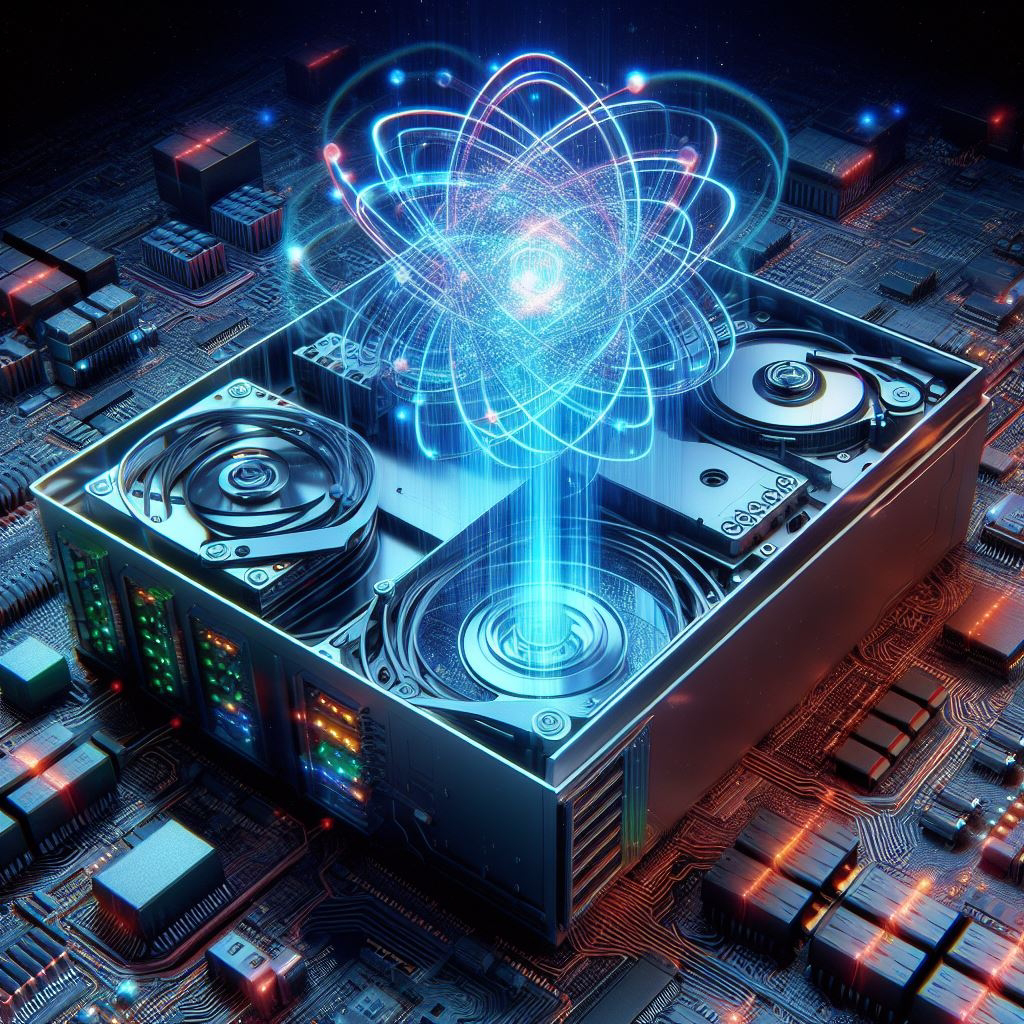Central Idea: Exploiting the unique properties of entangled particles to create a revolutionary memory storage system that transcends the limitations of traditional methods.
Rationale:
Current limitations: Traditional memory technologies like RAM and SSDs face fundamental trade-offs between performance (speed) and redundancy (data persistence). RAM offers high speed but volatile storage, while SSDs provide persistent storage but with slower access times.
Quantum advantage: Quantum entanglement allows for the creation of linked particles whose fates are intertwined, regardless of their physical separation. This phenomenon offers unique possibilities for data storage:
Simultaneous storage: Entangled particles can be used to encode information in both memory and disk simultaneously, enabling instant access to data stored on disk.
Quantum error correction: Entanglement can be leveraged to detect and correct errors in stored data, enhancing data integrity and redundancy.
Fault tolerance: Entangled particles can be distributed across multiple physical locations, making the system resilient to hardware failures and data loss.
Proposed investigation:
Develop protocols for encoding and decoding information in entangled particles. This involves exploring various qubit states and entanglement configurations to optimize data representation and manipulation.
Investigate methods for integrating entangled particle storage with existing memory and disk architectures. This includes designing interfaces and protocols for seamless data transfer and access.
Simulate and model the performance and reliability of the proposed system. This will involve analyzing factors like error rates, data throughput, and scalability to assess the feasibility and potential impact of the technology.
Explore potential applications of this technology beyond traditional data storage. Examples include quantum cryptography, secure communication, and distributed computing.
Expected outcomes:
A proof-of-concept for a novel memory storage system that combines the speed of RAM with the persistence of disk storage.
Enhanced data integrity and redundancy through quantum error correction and fault tolerance.
Foundations for further research and development in quantum computing and information processing.
Challenges and considerations:
Maintaining the coherence of entangled particles in real-world environments is a significant challenge.
Integrating quantum systems with existing infrastructure requires careful design and engineering.
The cost and complexity of implementing quantum memory technology may initially limit its adoption.
Conclusion:
Quantum entanglement offers a promising avenue for revolutionizing data storage by combining performance and redundancy in a way that traditional technologies cannot. Further investigation into this area has the potential to significantly impact computing, communication, and other fields.
This hypothesis is just a starting point for further research and development. As the field of quantum computing continues to evolve, we can expect even more innovative approaches to data storage and information processing to emerge.
Disclaimer: Google's Artifical Intelligence has been used to generate this paper using all the information available to it in its model.

No comments:
Post a Comment